On the afternoon of September 8, the working delegation of the Central Propaganda Department and a number of departments, ministries and branches worked with the Academy of Journalism and Communication. Mr. Nguyen Trong Nghia, Secretary of the Party Central Committee, Head of the Central Propaganda Department, headed the working delegation. Also participating in the working delegation were representatives of the Ministry of Education and Training and the Ministry of Information and Communications. During the working session, the representative of the Ministry of Information and Communications, Deputy Minister Nguyen Thanh Lam, said that there was practical evidence showing that the assessment that journalism is not attractive is incorrect. On the contrary, journalism is a profession "with a future".
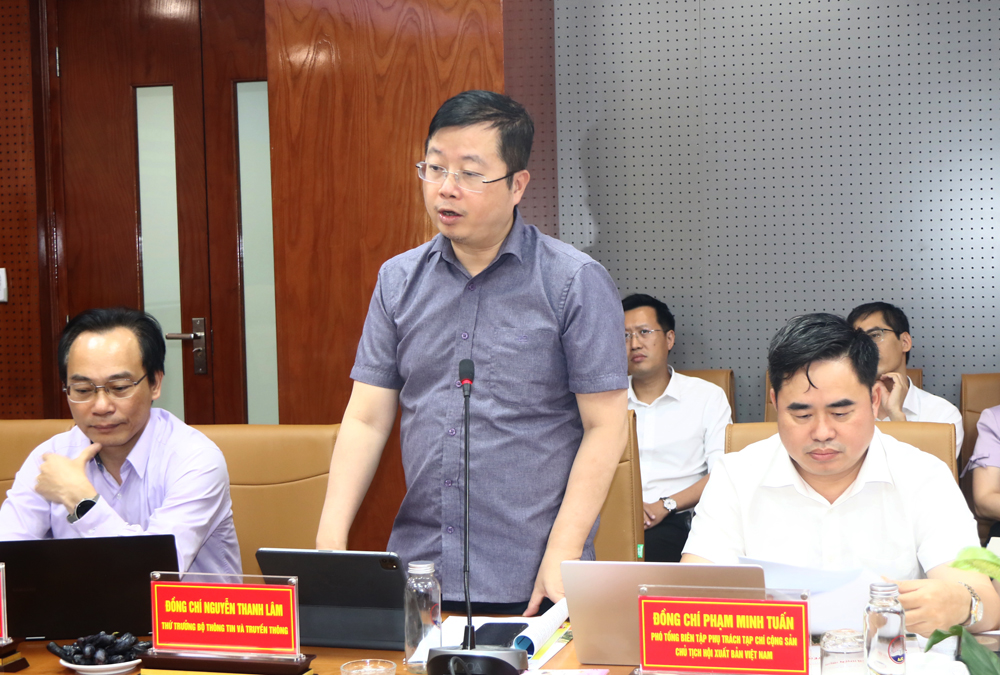
Mr. Nguyen Thanh Lam, Deputy Minister of Information and Communications, said that journalism is a profession "with a future".
9 points in one subject is not sure to pass
According to the report of the Academy of Journalism and Communication, in recent years, the enrollment and training in the fields of journalism, publishing, and communication of the academy have grown steadily in scale. This is also the most potential and attractive enrollment group of the academy at present, accounting for more than 50% of the total enrollment target of the year assigned by the Ministry of Education and Training.
In particular, the benchmark scores for journalism majors are all high. In 2023, among journalism majors, the lowest benchmark score is 33.92/40, the highest is 36.98/40 (the academy determines the benchmark score by major and by combination).
Every year, the academy conducts a survey on the employment rate of students after graduation. In general, students majoring in journalism, publishing, and communications have a high employment rate, with an average of over 70% working in the field they were trained in. Many majors and specialties have a job rate in the field of journalism/communications above 80%.
Regarding the satisfaction level of the human resource using agencies, the annual survey results show that this index is rated at a high level, especially in terms of expertise and awareness, political attitude and ideology. The majority of graduates meet the requirements and tasks of the recruiting agencies.
According to Mr. Nguyen Thanh Lam, the journalism training of the Academy of Journalism and Communication in particular and journalism training in general in recent years has not only promoted tradition but also been proactive and creative to flexibly adapt to the increasingly vibrant information and communication context. Journalism training is of interest to the people, reflected in the high to very high entrance scores, especially for the Academy of Journalism and Communication.
Mr. Lam said: "There was a time when society was upset about some journalists' dishonest work, and some editorial offices were not serious. From there, there was a prejudice that journalists were people with "3 subjects with 9 points in block C". It has been proven that this prejudice is not true, because in reality, a 9 point subject does not necessarily mean passing the journalism major. It proves that this industry has a future, meaning there are career prospects and working environment".
Mr. Lam also believes that the recent emergence of the concept of "policy communication" is due to a change in awareness within the government agency system. Communication expertise has infiltrated the skills not only of media workers but also of policy makers and state administrative agencies.
Need to train "journalism" instead of just "writing articles"
According to Mr. Lam, there are currently many new stories participating in the press life such as digital transformation of press, technology press, press using data, applying AI to produce part of press works... These things make the training program of University of Journalism have to be constantly updated. The Ministry of Information and Communications will contribute with the Ministry of Education and Training to draft, so that the Ministry of Education and Training can soon promulgate the standard training program of University of Journalism.
At the same time, both ministries may also have to jointly draft training program guidelines to be applied in a certain period, helping training institutions have reference documents.
Mr. Lam also pointed out the current situation of the journalism field, which mainly trains journalists in writing, but lacks the training in "journalism". The reality of "journalism" causes journalists to "run into" a series of problems such as journalism economics , management skills in journalism... There are many leaders in press agencies who are journalists with good expertise, but when they become leaders, they encounter many obstacles. There are people who, when they become leaders, "do the right thing" but cannot "feed" their troops.
"We suggest that in the program standards and output requirements, requirements on journalism skills should be integrated," Mr. Lam commented.
Need to build domestic press data
According to Mr. Lam, a very important missing link in the current press system is the lack of a method to approach, measure, evaluate, and rank press agencies, publishers, publications, etc. This ranking needs to be done independently, with recommendations from scientists, so that experts have a basis for reference.
We still have press awards, including national press awards, which are still awarded in the traditional way, with a jury consisting of experts - experienced journalists, who qualitatively evaluate the press works submitted for the award. Meanwhile, press works need to be evaluated for their social impact, through data. Measurement and database creation are not only necessary but also a service that brings in large revenue.
"One of the current policies of the Ministry of Information and Communications is to have its own data for the press to reduce dependence on Google Analytics, dependence on the measurement and evaluation systems of foreign companies. These companies are in the advertising distribution ecosystem, so they both measure and put ads in. This dependence has made the domestic press very passive," said Mr. Lam.
Source link




![[Photo] Closing of the 1st Congress of Party Delegates of Central Party Agencies](https://vphoto.vietnam.vn/thumb/1200x675/vietnam/resource/IMAGE/2025/9/24/b419f67738854f85bad6dbefa40f3040)











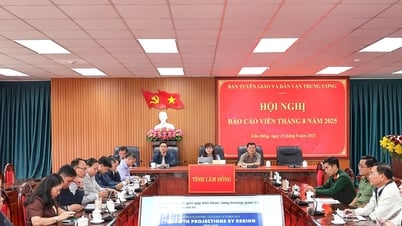









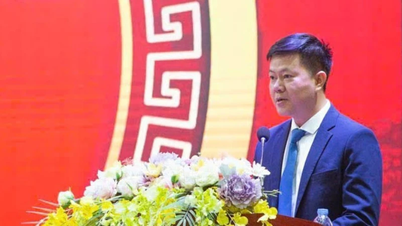










![[Photo] Editor-in-Chief of Nhan Dan Newspaper Le Quoc Minh received the working delegation of Pasaxon Newspaper](https://vphoto.vietnam.vn/thumb/1200x675/vietnam/resource/IMAGE/2025/9/23/da79369d8d2849318c3fe8e792f4ce16)
































![[Photo] Solemn opening of the 1st Congress of Party Delegates of Central Party Agencies](https://vphoto.vietnam.vn/thumb/402x226/vietnam/resource/IMAGE/2025/9/24/82a89e250d4d43cbb6fcb312f21c5dd4)


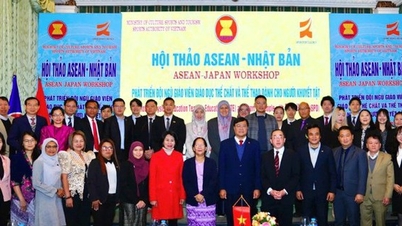














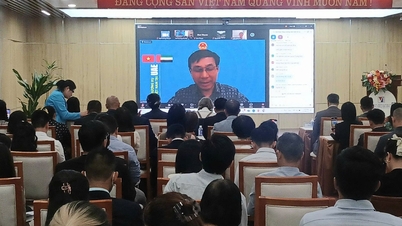










Comment (0)